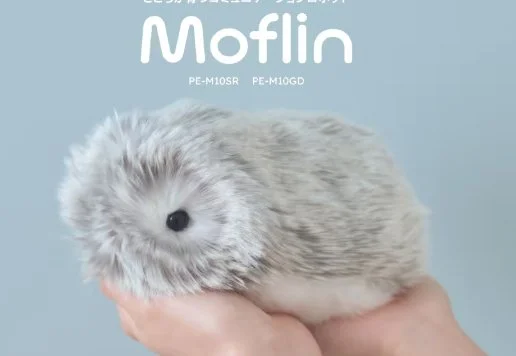The Ultimate First Date: Combining Psychology and Adventure
First dates can be daunting. You want everything to go smoothly, find common ground, and most importantly, have a great time. Enter the theme park: a place brimming with excitement, shared experiences, and countless opportunities for bonding. But why is a theme park the perfect setting for a first date? Let’s explore the science and the fun behind this ideal choice.
Table of Contents
The Thrill of Excitement
Theme parks are designed to thrill. From gravity-defying roller coasters to spine-chilling haunted houses, these attractions get your heart racing. But did you know that this excitement can make your date more attractive to you?
This phenomenon, known as the misattribution of arousal, occurs when our physiological responses (like an increased heart rate) are attributed to the person we are with, rather than the activity itself. So, as you scream your way through a roller coaster ride, your brain might interpret the excitement as a sign that you’re having a fantastic time with your date.
Creating Shared Experiences
Research shows that shared experiences, especially those involving novelty and excitement, bring people closer together. Couples who engage in new and thrilling activities report higher levels of relationship satisfaction.
A theme park offers a plethora of unique experiences for you and your date to share. Whether conquering a terrifying ride, laughing through a show, or marveling at a parade, these moments create a sense of unity and mutual understanding. You’re not just having fun; you’re building a connection.
Opportunities for Conversation
First dates can sometimes be awkward, with both parties searching for something to talk about. Theme parks eliminate this problem by providing natural conversation starters at every turn. Discuss the thrill of the last ride, debate over which attraction to hit next, or laugh about your skills (or lack thereof) at the ring toss game.
These activities provide endless fodder for light-hearted and engaging conversation, helping you get to know each other in a relaxed and enjoyable setting.
Nonverbal Communication and Bonding
Nonverbal communication plays a crucial role in attraction. Positive body language, such as smiling, maintaining eye contact, and even light touches, can significantly enhance attraction. Theme parks encourage this kind of interaction naturally.
The casual and fun atmosphere makes it easier to smile and laugh together. Holding hands during a scary ride or high-fiving after winning a game fosters a sense of intimacy and connection without feeling forced.
Flexibility and Variety
One of the best things about theme parks is their versatility. Whether you’re adrenaline junkies looking for the next big thrill or you prefer a more laid-back experience with gentle rides and shows, there’s something for everyone.
This variety ensures that both you and your date can find activities you enjoy, making the experience more personalized and enjoyable. It also shows that you’ve put thought into choosing a place that offers a bit of everything, which can be impressive in itself.
The Power of Playfulness
The playful environment of a theme park can help reduce first-date nerves. Engaging in fun activities and embracing a carefree attitude can create positive emotions and enhance attraction. Laughter and shared enjoyment are powerful tools in building a connection and making a lasting impression.
Sharing a Meal to Build Trust
Buying a meal for your date is a time-honoured gesture that demonstrates generosity and the ability to provide, traits that are attractive on a fundamental level. By treating your date to a meal, you’re signalling that you’re considerate and willing to share, which can enhance your attractiveness.
Moreover, eating together has been shown to build trust and foster a sense of closeness. Sharing food is a deeply social activity that can strengthen bonds and create a feeling of camaraderie. Theme parks often have a variety of dining options, from casual snacks to sit-down restaurants, providing the perfect setting to share a meal and enjoy each other’s company.
Creating Memorable Moments
First dates are all about making a lasting impression, and a theme park provides numerous opportunities for creating unforgettable moments. From the excitement of a roller coaster to the delight of winning a game prize, these shared experiences become cherished memories that can serve as the foundation for a budding relationship.
-
Start with a Thrill: Begin the date with an exciting ride to boost attraction through shared adrenaline.
Psychological Insight: The misattribution of arousal means your heightened excitement is attributed to your date, increasing attraction (Zillmann, 1983).
Play Games: Engage in fun, light-hearted competition at game booths to break the ice.
Psychological Insight: Playfulness and shared activities can reduce first-date nerves and foster bonding (Bressler, Martin, & Balshine, 2006).
Share a Snack: Enjoy a casual snack together to relax and build trust.
Psychological Insight: Sharing food enhances trust and cooperation, and demonstrates the ability to provide (Dunbar, 2017; Buss, 1989).
Navigate a Funhouse: Embrace playful interactions to enhance bonding and nonverbal communication.
Psychological Insight: Nonverbal communication, like smiling and laughing together, enhances attraction and connection (Burgoon, 1994).
Have Lunch Together: Offer to buy lunch, demonstrating generosity and building rapport through a shared meal.
Psychological Insight: Providing food is a signal of generosity and resource-sharing, which are attractive traits (Buss, 1989).
Attend a Show: Watch an interactive show or parade for a shared experience and easy conversation.
Psychological Insight: Shared novel experiences increase relationship satisfaction and bonding (Aron et al., 2000).
Relax with a Gentle Ride: Choose a slower ride to engage in deeper conversation and enjoy the views.
Psychological Insight: Gentle rides provide a relaxed environment for meaningful conversation and emotional connection.
Capture Memories: Take photos and shop for souvenirs to create lasting memories.
Psychological Insight: Creating shared memories fosters a sense of unity and mutual understanding.
End with a Final Thrill: Conclude the day with another exciting ride to leave a lasting impression.
Psychological Insight: Ending with a high-energy activity reinforces the positive emotions and attraction built throughout the day.
Stroll and Reflect: Take a leisurely walk through the park to recap the day and express interest in future dates.
Psychological Insight: Reflecting on shared experiences and expressing future interest solidifies the bond and indicates genuine interest.
By understanding and applying these psychological principles, you can ensure a fun, engaging, and memorable first date that effectively builds connection and attraction.
Simply Put
A theme park offers the perfect blend of excitement, shared experiences, and opportunities for bonding, making it an ideal setting for a first date. The thrilling rides, diverse activities, and playful atmosphere provide the perfect backdrop for creating lasting memories and building a meaningful connection. So, next time you’re planning a first date, consider the psychological dynamics of a theme park for an unforgettable experience.
References
Aron, A., Norman, C. C., Aron, E. N., McKenna, C., & Heyman, R. E. (2000). Couples' shared participation in novel and arousing activities and experienced relationship quality. Journal of Personality and Social Psychology, 78(2), 273-284. Couples' shared participation in novel and arousing activities and experienced relationship quality. (apa.org)
Bressler, E. R., Martin, R. A., & Balshine, S. (2006). Production and appreciation of humor as sexually selected traits. Evolution and Human Behavior, 27(2), 121-130. Production and appreciation of humor as sexually selected traits. (apa.org)
Burgoon, J. K. (1994). Nonverbal signals. Handbook of Interpersonal Communication, 2, 229-285. Nonverbal Communication | Judee K Burgoon, Valerie Manusov, Laura K. G (taylorfrancis.com)
Buss, D. M. (1989). Sex differences in human mate preferences: Evolutionary hypotheses tested in 37 cultures. Behavioral and Brain Sciences, 12(1), 1-14. Sex differences in human mate preferences: Evolutionary hypotheses tested in 37 cultures | Behavioral and Brain Sciences | Cambridge Core
Dunbar, R. I. M. (2017). Breaking bread: the functions of social eating. Adaptive Human Behavior and Physiology, 3(3), 198-211. Breaking Bread: the Functions of Social Eating | Adaptive Human Behavior and Physiology (springer.com)
Zillmann, D. (1983). Transfer of excitation in emotional behavior. In J. T. Cacioppo & R. E. Petty (Eds.), Social Psychophysiology: A Sourcebook (pp. 215-240). New York: Guilford Press. Excitation Transfer Theory - Zillmann - Major Reference Works - Wiley Online Library















